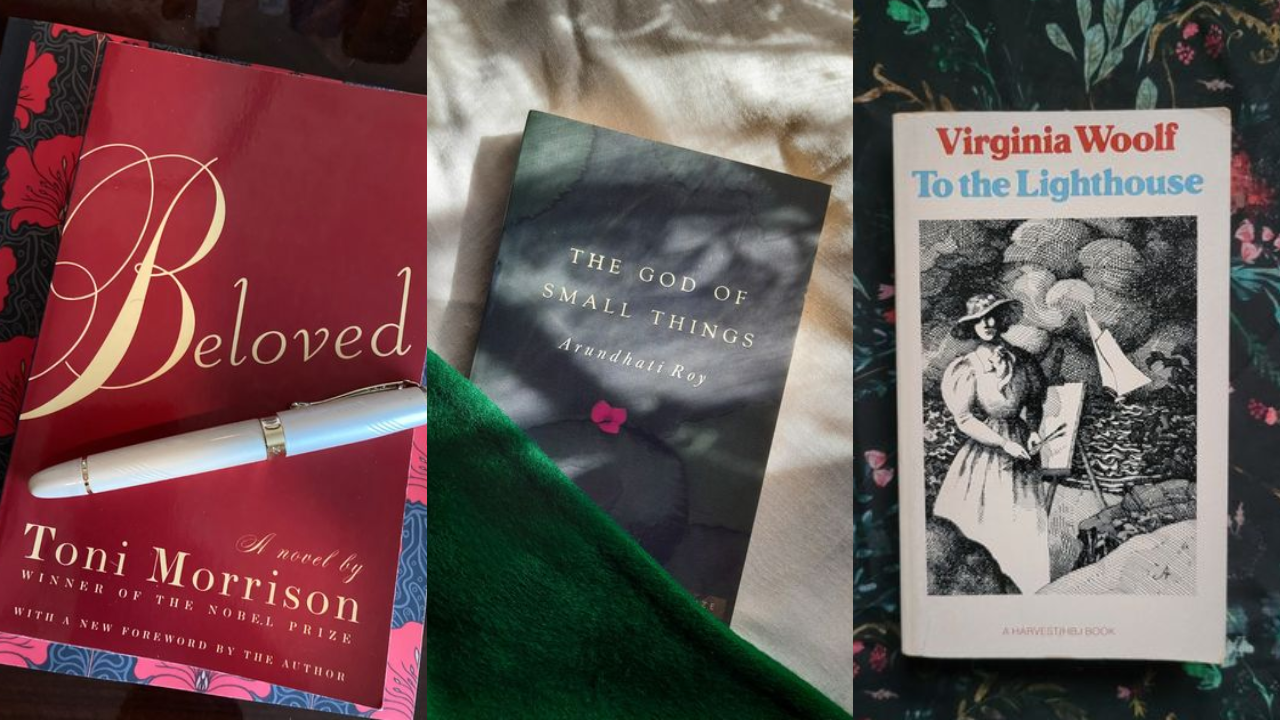Books recommended by Elif Shafak (Image credit: Instagram)
Elif Shafak, a well-known Turkish-British author known for her deep and thought-provoking writings, often shares her favorite books and recommendations. Below, we take a closer look at eight fiction books Elif Shafak has recommended or appreciated, each offering unique themes, styles, and cultural perspectives:
1. One Hundred Years of Solitude by Gabriel García Márquez
This landmark novel is a cornerstone of magical realism. It chronicles the life of the Buendía family over seven generations in the fictional town of Macondo. Márquez weaves together myth and reality, exploring themes such as loneliness, love, and the cyclical nature of history. Shafak admires García Márquez’s ability to blend the magical with the mundane, creating a narrative that defies conventional boundaries. The novel’s exploration of time and memory resonates deeply with Shafak’s own work, which often intertwines historical and fantastical elements.
2. The Master and Margarita by Mikhail Bulgakov
Set in Soviet Moscow, this novel combines fantasy, romance, and political satire. It tells the story of the Devil’s visit to the city and the love story between the Master, a writer, and Margarita. The novel is known for its complex narrative structure and its critique of totalitarianism. Shafak is drawn to Bulgakov’s inventive narrative and his exploration of the power of storytelling. The novel’s blend of fantasy and reality, along with its critique of oppressive regimes, aligns with Shafak’s own themes about freedom and the role of fiction in society.
3. The God of Small Things by Arundhati Roy
This Booker Prize-winning novel is set in Kerala, India, and tells the story of twins Rahel and Estha, whose lives are affected by the tragic events surrounding their family. Roy’s novel is celebrated for its lyrical prose and non-linear narrative. Shafak praises Roy’s exquisite prose and her ability to capture the nuances of family dynamics and social constraints. The novel’s exploration of forbidden love and cultural taboos resonates with Shafak’s interest in the intersections of personal and political narratives.
4. Beloved by Toni Morrison
Morrison’s Pulitzer Prize-winning novel is set in the aftermath of the American Civil War and follows Sethe, an escaped slave who is haunted by the ghost of her dead daughter. The novel explores themes of memory, trauma, and the legacy of slavery. Shafak admires Morrison’s powerful storytelling and her deep engagement with themes of memory and trauma. The novel’s exploration of the historical and emotional weight of slavery parallels Shafak’s focus on historical memory and its impact on individual lives.
5. To Virginia Woolf’s lighthouse
This modernist classic examines the Ramsay family’s summer holiday on the Isle of Skye and explores themes such as time, memory, and the nature of artistic creation. Woolf’s stream-of-consciousness narrative style is a key feature of the novel. Shafak values Woolf’s innovative narrative techniques and deep psychological insights. The novel’s exploration of time and the subjective nature of reality is a significant influence on Shafak’s own approach to storytelling.
6. The Unbearable Lightness of Being by Milan Kundera
Kundera’s philosophical novel follows the lives of four characters in Czechoslovakia before and after the Prague Spring. It explores themes such as love, freedom, and the interplay between history and personal choices. Shafak appreciates Kundera’s exploration of philosophical and existential themes. The novel’s analysis of the intersection between personal life and historical events reflects Shafak’s own interest in how individual experiences are shaped by broader cultural and historical contexts.
7. The Shadow of the Wind by Carlos Ruiz Zafon
Set in Barcelona after World War II, this novel follows a young boy named Daniel who discovers a mysterious book in a hidden library. As he grows up, he uncovers dark secrets about the book’s author and the city’s troubled past. Shafak is captivated by Zafon’s atmospheric narrative and the novel’s exploration of memory and identity. The book’s layered narrative and its celebration of literature as a means of uncovering truth align with Shafak’s own literary interests.
8. The Brief Wondrous Life of Oscar Wao by Junot Díaz
This Pulitzer Prize-winning novel tells the story of Oscar de León, a Dominican-American who dreams of becoming a famous writer and finding love. The novel intertwines Oscar’s life with the history of the Dominican Republic under the Trujillo dictatorship. Shafak is impressed by Díaz’s vibrant storytelling and his ability to blend personal and historical narratives. The novel’s exploration of cultural identity and critique of political regimes reflect the themes of diaspora and the impact of history on Shafak’s personal life.
Disclaimer:
The information contained in this post is for general information purposes only. We make no representations or warranties of any kind, express or implied, about the completeness, accuracy, reliability, suitability or availability with respect to the website or the information, products, services, or related graphics contained on the post for any purpose.
We respect the intellectual property rights of content creators. If you are the owner of any material featured on our website and have concerns about its use, please contact us. We are committed to addressing any copyright issues promptly and will remove any material within 2 days of receiving a request from the rightful owner.

